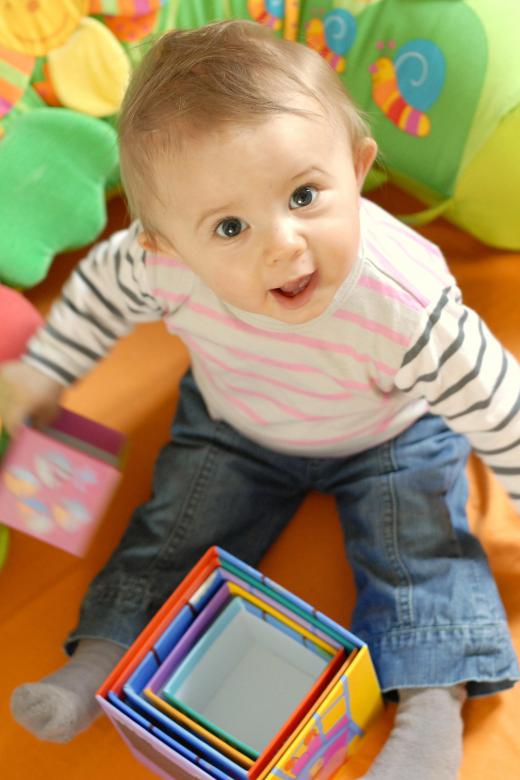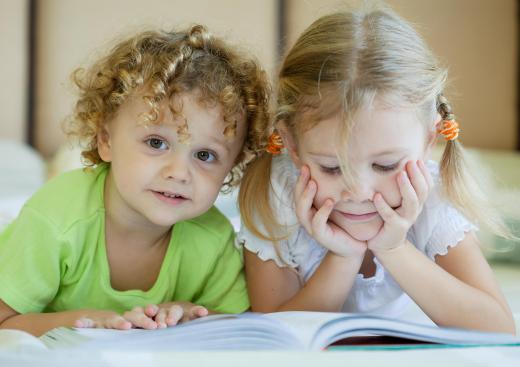There are so many different educational programs for children, and these are taught in a variety of formats to kids of many ages. They begin with early learning opportunities such as those offered in preschool programs, or even earlier with early reading taped programs for infants and toddlers. Opportunities progress as children grow so that kids may explore a number of extracurricular interests or enhance skills needed in the school environment.
In early years, and though educational value may be debated, there are many television shows that are viewed as educational for children. Some of these integrate early reading and math skills, and others may focus more on storytelling or teaching of ethics and manners. These small basic steps actually play a huge part as a child eventually transitions to learning more complex concepts like statistics or precalculus. So as early as now, make sure you're checking every learning material before you let your kids consume them so that it doesn't affect their ability to learn later on. Certain televised or taped programs are set up to promote early learning specifically, or to accomplish certain goals like teaching very young children to read. These are often purchased in sets and can be quite expensive.

Parents may want a less televised approach when they choose educational programs for children and there are many preschools and nursery schools that focus on early childhood education. These are viewed as separate from daycare situations, though some daycares do have strong early learning programs. The principal difference between the two tends to be that preschool is more likely to have a focus on learning skills students might need for kindergarten readiness, and they usually feature shorter days or attendance only a few days a week.

When children are in formal school settings, such as the primary grades, educational programs for children don’t stop. In fact, with many schools now so focused on meeting state standards, they may be needed more than ever to create a well-rounded education. For instance, there are several disciplines of Mathematics that vary in complexity and difficulty. Different educational programs will allow them to explore these areas in the most conducive way without compromising their ability to learn other things. Certain hallmarks of early primary school, such as experimentation with art and music, have often been dropped or reduced in favor of focus on reading and math.

Parents may need to find programs that can augment skills that aren’t receiving much attention. Some schools have enrichment classes, offered at low prices, where kids can explore artistic or musical gifts, and these programs could have other potential classes such as those in drama, foreign languages, interpretation of literature, chess, or even sports. Enrichment classes can provide an outlet for students to explore their talents and gifts, and they can also help them develop skills in reading or writing that they may not get a chance to develop in a regular class setting. Parents can decide when and if these classes or ones offered through private education institutions are appropriate to their kids.

Educational programs for children may take the form of acquiring better study skills too. Many private learning companies offer tutoring or specific work on learning some aspect of school curriculum. Sometimes schools, recreation centers, or groups like the YMCA® offer these too. Cost frequently depends on the business running it, and can be expected to be very high in formal tutoring or learning schools and much lower if offered by community agencies.

Parents should also weigh timing of enrolling students in these kinds of educational programs for children, especially if a child is already struggling at school. If you think hiring a Trigonometry tutor for your kid is helpful, you should do that. However, you must be sensitive and attentive to your child's current workload at school so you don't add unnecessary stress that will further affect their learning. Even the best intended tutoring/teaching could end up creating a greater workload than a child can handle. Summer enrollment might be a better alternative.

When learning the basics is not the issue, parents can look to more enrichment classes for their children. For example, geometry subjects can be slowly introduced through these programs until such a time when upgrading is necessary. Many kids want to take a specific martial art, play soccer, interpret literature, really want to play a specific instrument, or just want to learn something new. Private and community organizations have lots of these learning opportunities available for the older child. These will vary in price, length, skill of teachers and many other factors, but they can considerably augment school curriculum.
